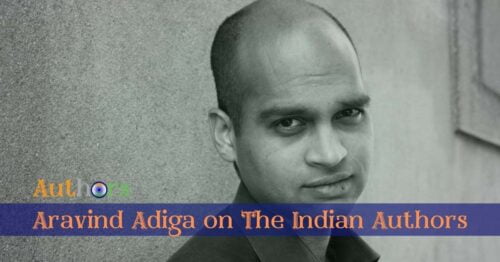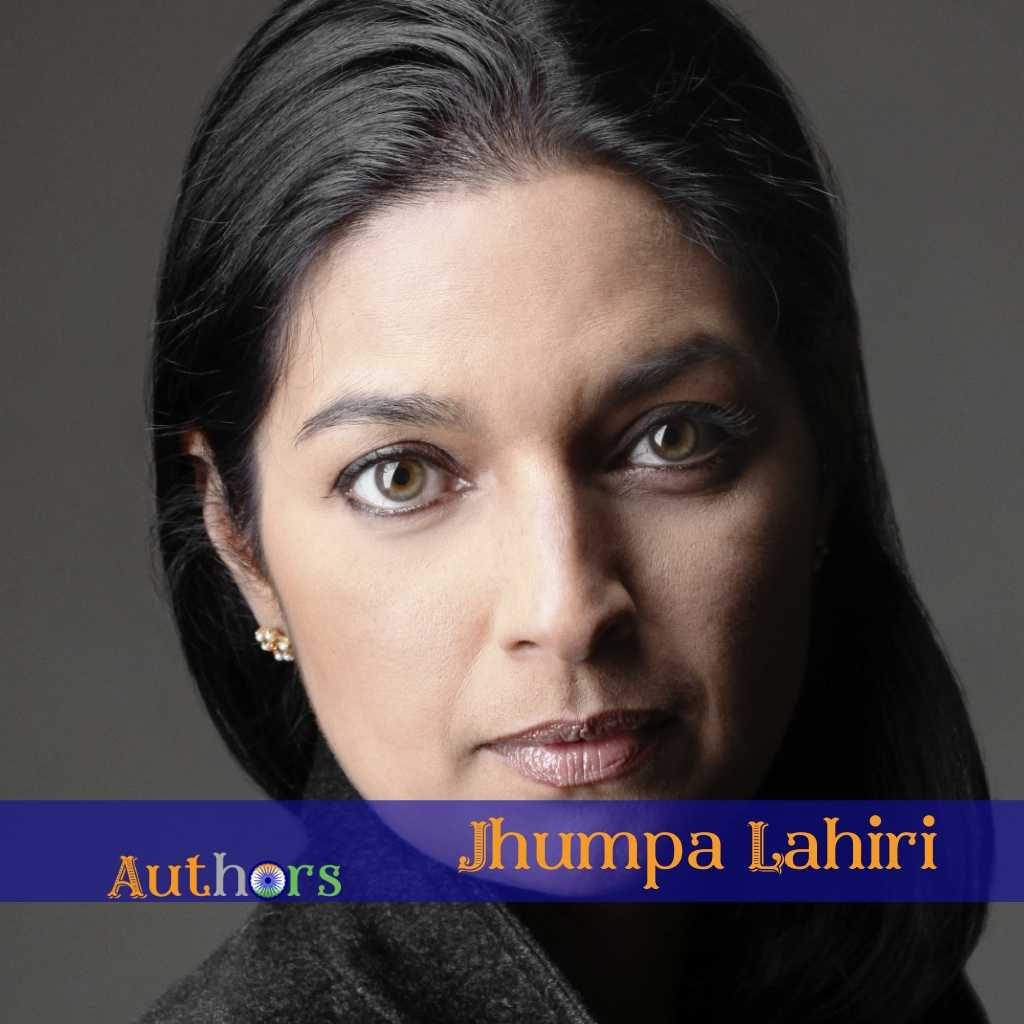Name: Aravind Adiga
Born: 23 October 1974 (Chennai)
Lived in: India, Australia, USA (currently in India)
Notable Work(s): The White Tiger
Notable Awards: Man Booker Prize in 2008
Genre: Dark Fiction, Realism, Modern, Problem-Literature, Dystopian
India has a constant habit of forgetting whether it’s the atrocities that it faced or the blossoming of culture, civilisation and much more. India forgets. However, there are Indians who remember things very well, for long and, at times, forever too. Indians who forget things easily cannot develop the prowess to evaluate (not judge) people, art, states, nations, the world and the universe. Indians who remember things can certainly evaluate all that finds mentioned in the sentence above. Where are you? Aravind Adiga’s thundering entry into the world of Indian English literature became his instant golden ticket to fame when he won the Man Booker Prize in 2008 for his debut novel The White Tiger, Balram Halwai’s sweet dishes that the elite jury, prejudiced readers and naysayers feasted carnivorously. The writing was not up to the mark. The written was, perhaps, what the world of readers liked. Adiga was praised, criticised, and called in literary festivals and celebrations too. However, the enigma that was developed around a new novelist suddenly rising to fame died gradually and you would seldom find a reader who might tell you the names of the other two novels by this author. So, the question is, what was the Adiga phenomenon? What happened to the Adiga idea? How for every why and why for every when…
General Introduction:
Aravind Adiga was born in Chennai and had his early education in Mangalore. One can say that he was born with a golden spoon into a rich family with well-made connections, possession and everything a child could dream of in his or her early years. His family moved to Australia and he continued his education there. He moved to New York to pursue his career in English Literature. After reading English literature he inclined toward writing novels. Adiga also studied English literature at Columbia University and later at Oxford University as well. Therefore, one can easily see that Adiga, unlike many emerging and established authors in India today, had an apt education that could enable a person to understand the depths of fiction, the art of fiction and also the hidden treasures that could make something instant success – points of controversy. You could see a sauce made of everything in The White Tiger.
His Writing:
If there is one thing that is to be understood, Aravind Adiga is respected by those who read serious literature. By no means he is famous or popular or has a massive fan following. Who enjoys all these? You are guessing it right – Chetan Bhagat, Amish Tripathi and a few others. Why? Adiga has won the Booker Prize in his very debut! Well, understanding the world of fiction takes a dive into the same and those who have a literary background should know what it takes to keep the readers engaged and what it takes to keep the readers happy. Adiga may be a critic-favourite novelist and writing about his novel(s) may not make anyone feel belittled or secluded or excluded or disrespected.
Adiga’s vision is different from ordinary contemporary authors and you may conveniently feel the same once you begin reading his work. It is once again important to highlight that Adiga had studied literature at two reputed foreign universities. However, when it comes to connecting with the mass audience base, Adiga certainly falls short because modern readers in India want something to enjoy and not contemplate unless they are from a literary academic background or they are aware of works of sensation and works of sensibilities. Adiga’s magnum opus, hitherto, could not be famous among book lovers like Chetan’s any casual release. The White Tiger has limited itself to the cage of academic jargon, pondering and a wonderful subject to contemplate – whether it’s a dark fiction or not. This might be because of too deep imagery or a boring script that could somehow please the Man Booker Jury but not an ordinary reader.
Adiga has written five novels and many editorials. He is a journalist by profession and the political affiliations of his family might have created inroads into his writing philosophy and vision. Nevertheless, after his first novel’s bumper success, none of his novels could make it big to the same extent.
Critical Analysis of Aravind Adiga as a Novelist:
Themes, Style, Narratives & Plots – the whole circle of fiction:
There is only one lab rat – and this rat is a tiger – The White Tiger. The White Tiger has become a very obvious piece to critique for emerging literary critics, research scholars, literature students and even serious book reviewers or book critics. It offers a wide range of possibilities (only because it has won a prestigious prize). Some indulge in studying the metaphors and some study his dystopic vision.1 However, only one novel (most of the times) comes to the fore to rescue Adiga’s literary prowess.
Ulka Anjaria, a critic and professor of English literature residing in the USA, brings to the fore many facts related to the literature produced by Adiga, Ghosh and Roy. She tries to elicit the factor of locality and the course of ‘action’. Trying to rewrite the past might not be the way ahead, she suggests in her book on the Indian English novel, stuffed with essays by many scholars.2
To be honest, Adiga tries to beat the drum of his political and cultural understanding too harshly and he not only injures his hand but also puts others at risk of being glanced at by the leather of the drum. His mocking tone highlights India’s ambition to rise globally and embodies it inside the skin of an ill-educated, overly ambitious and almost sinister Balram Halwai does not only show how difficult it is to understand India but also understand the ambitions that this great nation harbours and won’t be mocked on the way to achieving the same. India of 2021 looks back at the tiger prisoned somewhere in the academic cages of nostalgia and elitism and laughs!3
Adiga cannot make a novel penetrate the common readers’ psyche because he tries to deliver extra every time. The tiger was to roar only once and it could not reach to save the Last Man in the Tower who barely survived the period Between the Assassinations and, sadly, could never make it to the Amnesty of the Selection Day!
His novels have one thing in common, most of the time – ambition. Balram has to be rich and come to the light; Yogesh A Murthy does have the ambition to stand up and give it a fight before he falls; Mohan, Radha Krishna and Manju Kumar, three share the common ambition to reach the heights… some for themselves and some for others. The popular phrase ascribed to the ‘pale’ white tiger, rags to riches, could be associated with the majority of Adiga’s publications. He brings in political ideology, cultural issues, religious references, common social practices and many other things close to an Indian mind to make his novel flow with more pace and attract the attention of readers from different walks of life.
Language is not a factor in modern Indian English writings because the language has become common, mostly. Average readers can understand what Adiga writes and could get the surface meaning comfortably. The lazy dots that continue a few arguments and layman’s adjectives are trademarks of his fiction. The plots in the novels by Adiga are simple and straightforward. Though he does not do something special with his plots, most of the time, his novels are there to be read to the last line if you have begun. Though he does prolong a few episodes that might decimate the readers’ willingness to continue that particular chapter or the episode, on a few occasions.
Adiga, more or less, for the common readers, will be a one-book wonder with no more titles that could carry his quickly-earned fame in 2008. His writings are suited for the readers who can unearth the high-tension references and allusions, could revel in the analogies between Adiga’s India and Dickens’ England and a few more elitist ideas. For common readers, Adiga’s writing circumambulates a caged, wounded and about-to-decay tiger… The White Tiger.
Books by Aravind Adiga:
The White Tiger, 2008
Between the Assassinations, 2008
Last Man in Tower, 2011
The Selection Day, 2016
Amnesty, 2020
Awards won by Aravind Adiga:
Man Booker Prize: 2008
(Surprised? #MeToo)
Conclusion:
Adiga is an enigma. Indian English literature could certainly have missed a phenomenon had he not written what he wrote in The White Tiger… and subsequently won the Man Booker for 2008. He almost joins hands with Amitav Ghosh in presenting the problems that India faces. However, he or any other Indian novelist for that matter, seldom reach the heights of Raja Rao who did not let his novel remain a pandora’s box of troubles and offered his readers with possibilities, solutions and solace. Further, by producing a work of fiction that highlights the so-called ‘darkness’ or the dark side of India, Adiga enjoys his boneless comparisons with Charles Dickens which, to me, is argumentum ad absurdum! And such jargons are the possible reason that Adiga’s fame rests, even after so many publications, on the same ‘white elephant’ even after 13 years of that zoo visit. His novels are readable by those readers who have a literary sense and that certainly brings him respect, and that’s well-deserved as well. However, a person who could do more might have accepted the ‘sacrifice’ made by an ambitious person who committed too much to taste the light!
References:
Singh, Prabhat K. Ed. The Indian English Novel of the New Millennium. Cambridge Scholars Publishing, 2013, Newcastle upon Tyne.
Anjaria, Ulka. Ed. A History of the Indian Novel in English. Cambridge University Press, 2015. New York.
Mishra, Alok. The White Tiger by Aravind Adiga – A Book Review. English Literature Education, 2021, https://englishliterature.education/





11 Comments. Leave new
Not surprised that my comments were not approved. Truth bites, worse than arctic cold.
Aarvind took the often followed narrative, written by other authors to be closer to the Booker prize, to impress the jury . I purchased the book The white tiger. I could – with much difficulty – only bear first few pages in the beginning, a few in the middle and a few at the end.
Here is the magic wand to get a Booker, and Aarvind got it right ( abuse India in the garb of fiction):
Abuse Hindus, Abuse Hindu gods ( some billion arses), while muslims have only one and christians three, run down the Holy Ganga, poke fun at the villagers, the list is long, and throughout the book is same. He is an epitome of negativity ( because writing positive, about environment, women’s rights, etc. do not get you the Booker).
Mr. Aarvind, don’t write any negatives of US, Europe. You will not get another booker. I salute Shehan Karunatilaka for writing novel The Seven Moons of Maali Almeida.
Nicely written biography of Aravind Adiga. Also, the critical analysis is up to the mark. I was looking to read something about Adiga writing style for my research paper. Thanks!
Even I wonder what happened after that unexpected Booker prize in 2008…
Very helpful article for research purpose… nice conclusions made by the writer of this piece. Adiga has certainly been an enigmatic phenomenon on the horizon of Indian English literature!
Amazing summary on Aravind Adiga… this is very helpful for my project.
Could anyone share the Reference books on Adiga’s literary works & his books in pdf, please?
Please email me at
[email protected]
Amazing article! Thanks for posting this.
This article perfectly sums up the creative craft of Adiga… I was looking for something on him critically I could use in my paper. Thanks for this wonderful paper of sort on Aravind Adiga. Recommended site for those who are looking for critical commentary on Indian authors.
Very organised article on Aravind Adiga, the Indian English novelist with booker award for an accidental novel, I guess. I liked the way you have mocked him, appreciated him and offered proper objectively subjective view on his literature. Wonderful! Looking to read more articles like this on other Indian authors.
Informative, long and well-explained article! It has wonderfully decoded the writings of Adiga and I liked the way the article has raised a question about his award collection. A man who has won the booker prize in his early stages of writings fails to win any other prizes for so long.